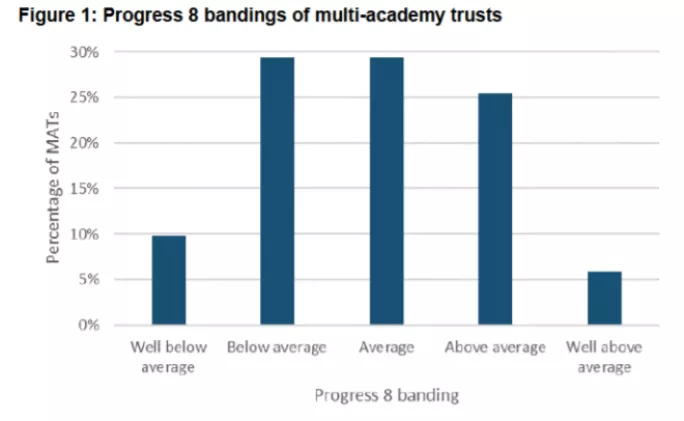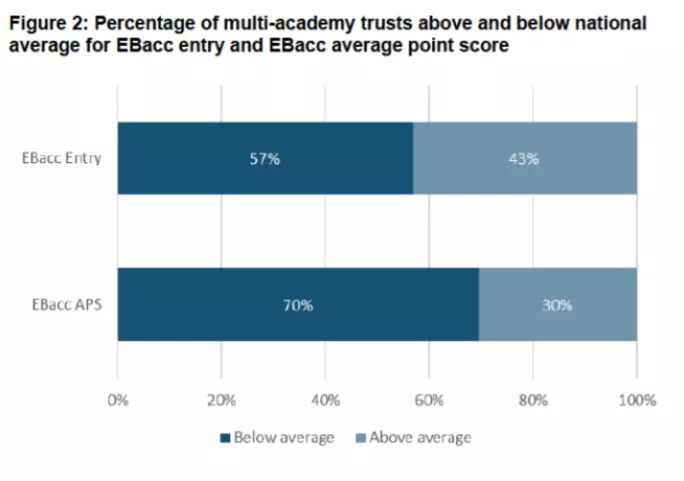The multi-academy trust sector achieved average lower Progress 8 scores and have lower performance and entry for the English Baccalaureate (EBacc) than the national average, new data shows.
Statistics published today by the Department for Education (DfE) show that the national Progress 8 score for pupils in eligible* multi-academy trusts (MATs) was -0.02, compared to 0.01 for all state-funded mainstream schools.
GCSEs: Top and bottom performing academy trusts named
Analysis: Gove’s GCSEs widened disadvantage gap
EBacc: Entry rate reaches peak of 40%
In 2019, 39 per cent of eligible MATs had Progress 8 scores below or well below the national average, 31 per cent had scores above or well above the national average, and the remaining 29 per cent were not significantly different from the national average.
The national EBacc average point score for eligible MATs was 3.87 points, compared to 4.15 points for all state-funded mainstream schools.
And the statistics show that 70 per cent of MATs have an EBacc average point score lower than the national average.
Meanwhile, the national EBacc entry rate for pupils in eligible MATs was 38 per cent, compared to 41 per cent for state-funded mainstream schools.
*To be eligible to be included in the data, a MAT must have at least three schools that have been with the trust for at least three years, and each school must have results in 2019.
That means that the data includes 24 per cent of all secondary mainstream academies and 36 per cent of all secondary academies in a MAT.
The DfE states that MAT performance data should not be used to infer performance of the MAT system as a whole.






